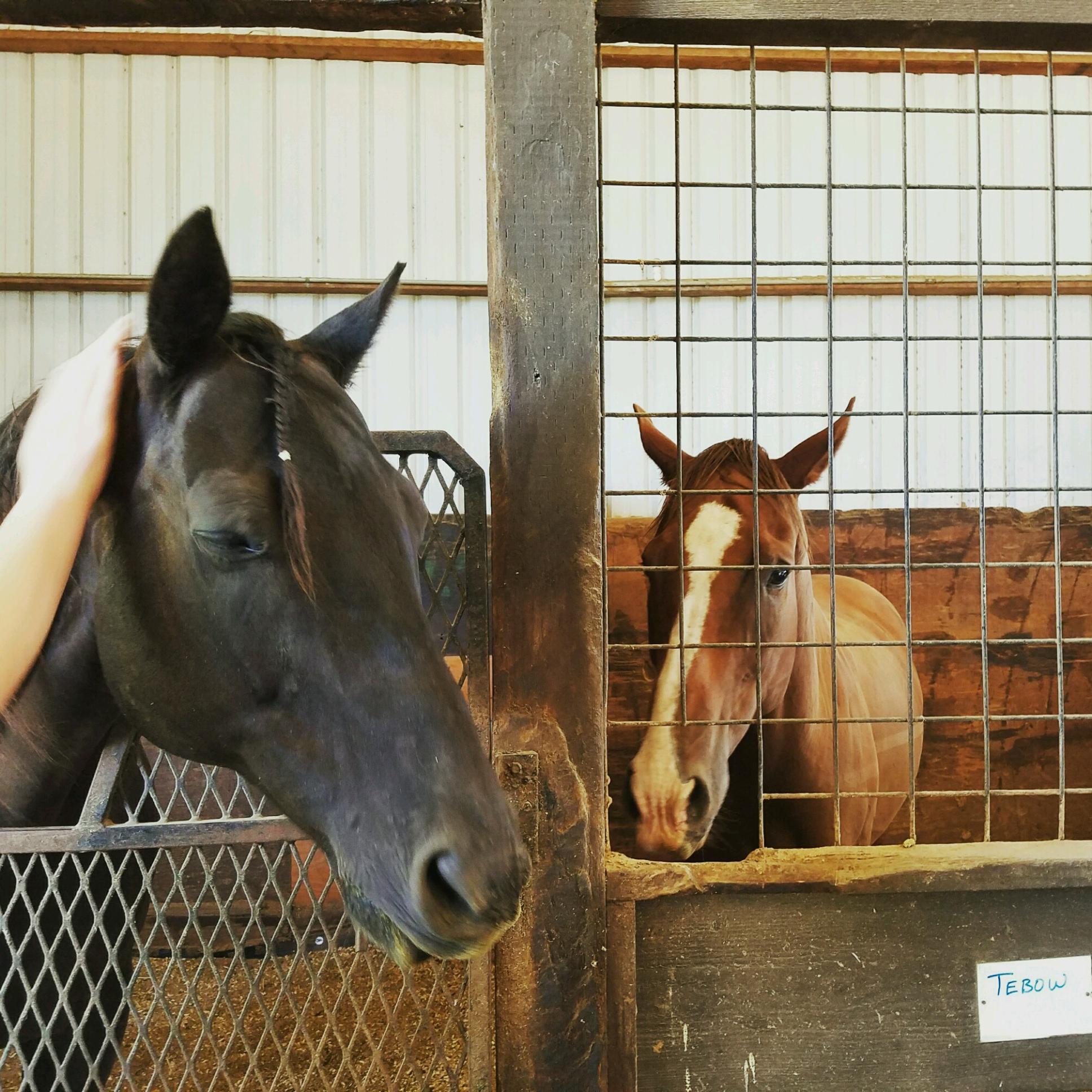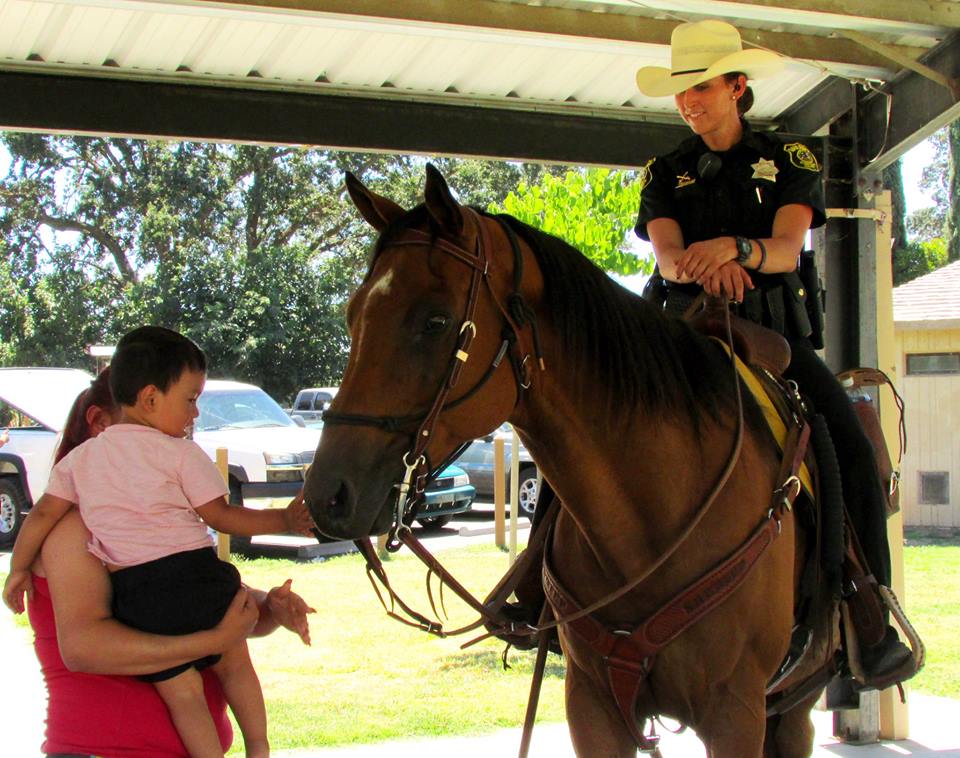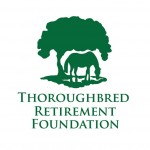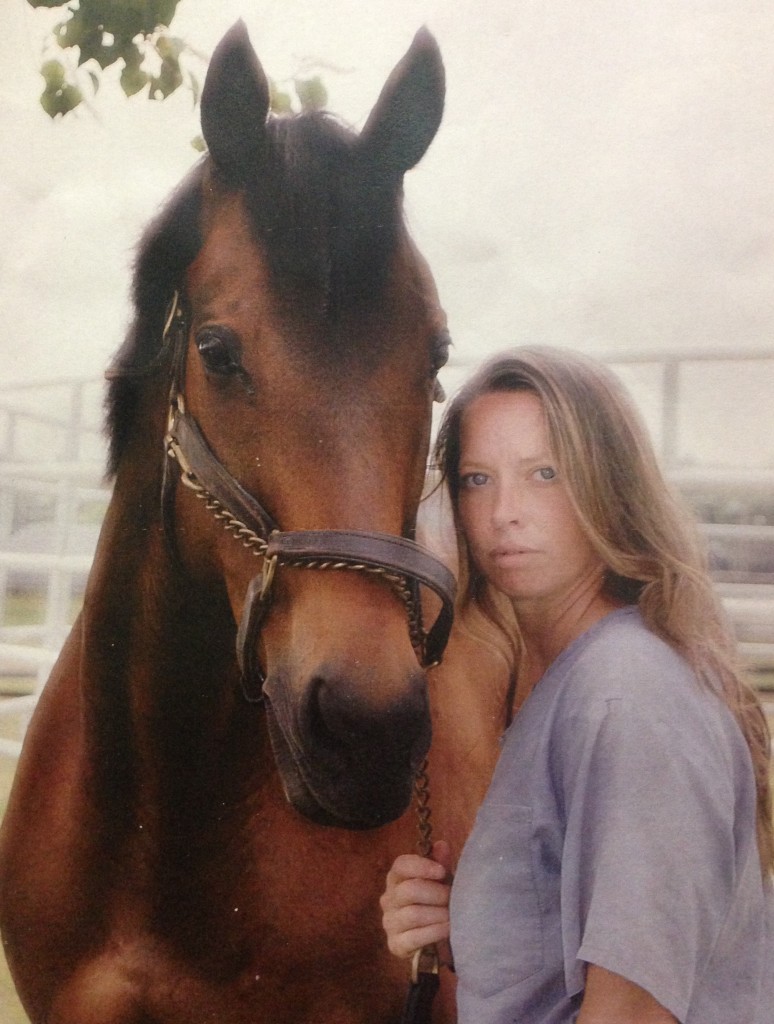
Farrah Ward was a high-ranking member of her town’s sheriff department before she was incarcerated at the Lowell Correctional Institution. There, she met OTTBs like Cut Music, pictured, and found peace. Photos courtesy Farrah Ward
Beneath the sheltering leaves of a dogwood tree, a once-respected member of a Florida sheriff’s department, stripped of her dignity, her job and her self-worth, kneeled down in her prison garb near a gentle ex-racehorse who himself had never amounted to much.
Pale chestnut Frosty Grin, with no obvious care in the world, lowered his head to snack in companionable silence as Farrah Ward lowered her head to rest it against a park bench beneath the tree. And there on the prison grounds of the Lowell Correctional Institution, she clasped her hands together and prayed.
“I was raised in a very strong Christian family. They were leaders in the church. But when I started living my life wrong, I lost touch with God,” Ward says. “I never felt comfortable praying in prison, with everybody around. But when I found that tree, and was there with Frosty, I suddenly felt comfortable, and I got down on my knees. It was just me and my horse; it was such a relief.”
From the time she was incarcerated in October 2011 on charges related to prescription drug abuse until the day she was released, on Aug. 9, 2014, Ward has been on a journey of personal growth, landing in the depths of despair—“my name made headlines for four days … I was such a disappointment to everyone”—and working her way back to self respect.
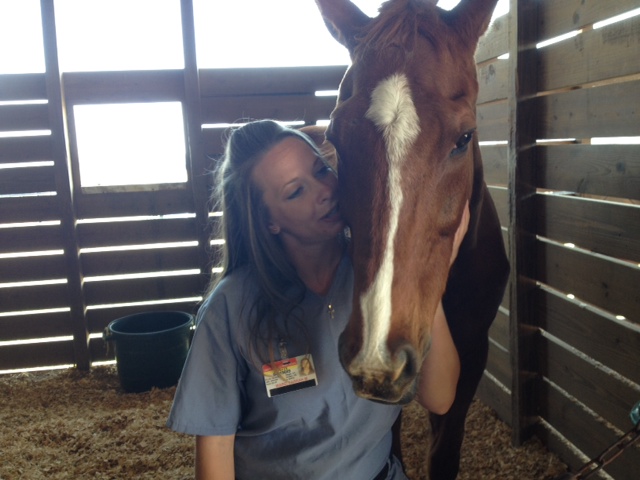
Farrah and Carterista enjoy a moment in the Thoroughbred Retirement Foundation’s Ocala, Fla. facility.
Though she was afraid of horses before she met Frosty Grin at the Thoroughbred Retirement Foundation’s Second Chances program,which teaches inmates horsemanship skills by caring for retired racehorses, a peace soon found her while spending her days grooming the 24-year-old gelding.
“I took care of Frosty for eight months. He was a beginner horse who needed a lot of extra attention because he was at the bottom of the pack, and got run off his feed bowl all the time,” she says. “He was like an elderly person who needed someone to take care of him, and I loved that. I would take him to the back paddock and groom him outdoors because he didn’t like being groomed in his stall. You could do anything with that horse, he was just so sweet and loving.”
As she worked with Frosty, her fear of horses receded and her confidence grew. It wasn’t only the hands-on experience caring for the former racehorse, it was the also the victories she won learning a new skill that boosted her feelings of self worth.
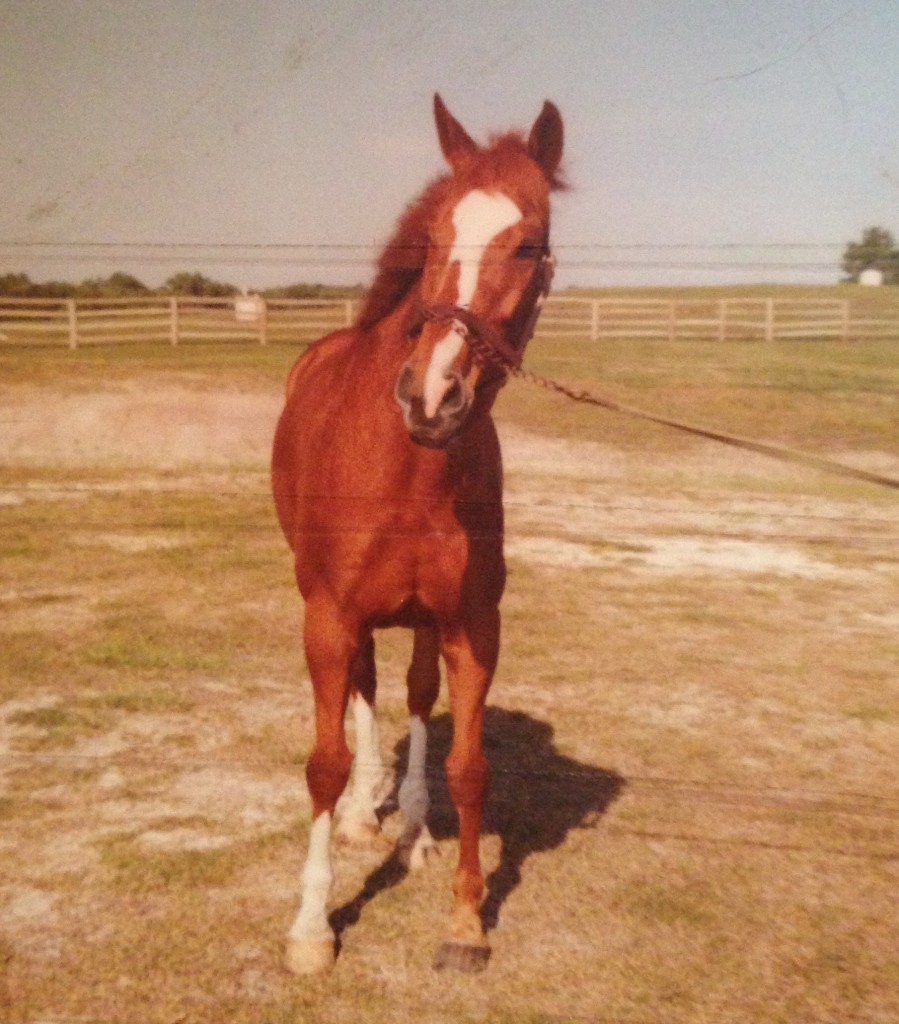
Frosty Grin was the horse Farrah spent the most time with, including moments praying at a tree in the prison grounds.
“It may sound a little weird to say this about a horse program, but the experience has taught me that just because I’ve made a mistake, I’m a better person than the poor choices I’ve made in my past,” she says. “Having to study materials and take tests and pass them gave me back my self esteem.”
Prior to her incarceration, Ward worked in a senior position at a sheriff department in a small Florida town. Though she still faces the scorn of those who say to her, “once a drug addict, always a drug addict,” she has stayed strong in the year she has been out. Focusing on reconnecting with her two teenage children, on finding work, and repairing relationships, she looks back on her time at the Thoroughbred Retirement Foundation’s Second Chances program as a pivotal moment in her life.“It may sound a little weird to say this about a horse program, but the experience has taught me that just because I’ve made a mistake, I’m a better person than the poor choices I’ve made in my past,” she says. “Having to study materials and take tests and pass them gave me back my self esteem.”
“My first few months working with these beautiful horses, I was so afraid,” she says. “But it wasn’t long into my journey that I saw my self-esteem begin to build, and my self-worth began to grow. These horses depended on us every day, and we did not fail them like we had done so many people in our past … I began to realize that hopelessness and failure was not who Farrah was. That thinking was not going to define my future. I could and would be a productive human again—I realized I was not a total loss.” — Originally published Aug. 7, 2015.

